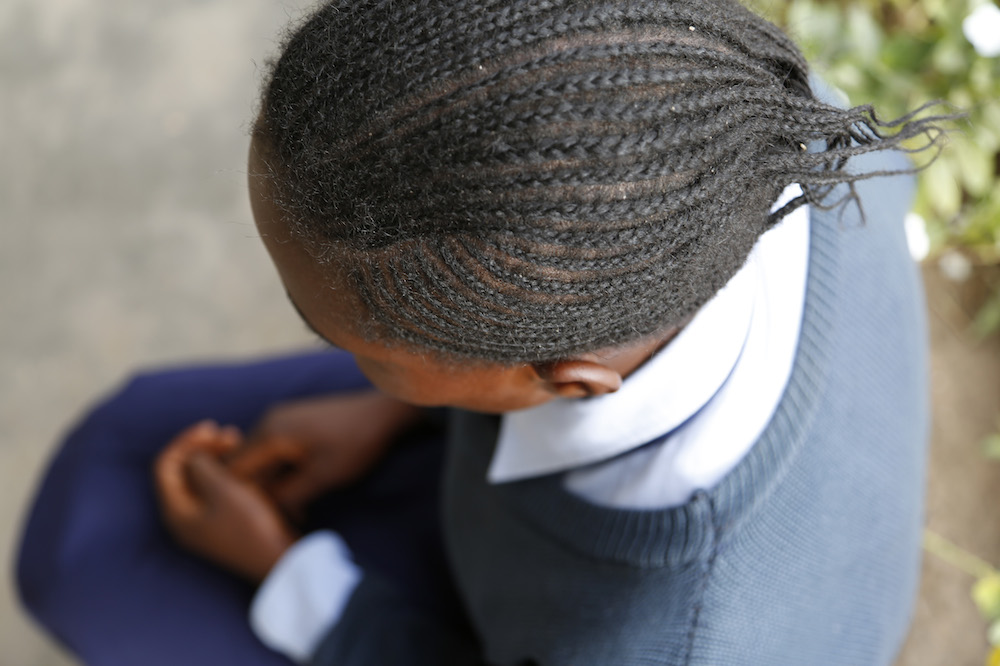
“Say no to child marriage – it is possible if we all fight for the rights of girls”
Global Youth Ambassadors
Tanzania has one of the highest child marriage rates in the world - here's a look at the causes, the challenges and the campaign to end the practice.
Marriage before the age of 18 is a fundamental violation of human rights. The constitution of Tanzania under article 12 states that “every human being is born free and equal and that every person is entitled to dignity”. It further states that every person is equal before the law and is entitled, without discrimination, to protection and equality before the law.
The Inter-Africa Committee on Traditional Practices Affecting the Healthy of Women and Children (2003) defined child marriage or early marriage as “any marriage carried out below the age of 18, before the girl is physically, psychologically and physiologically ready to shoulder the responsibilities of marriage and childbearing”.
The report showed findings which were collected from various regions in Tanzania by Child Dignity Forum (CDF) and the United Nations Population Fund (UNFPA), which gave out findings on the causes and challenges of child marriage of the 10 selected regions which represent both high and low rates of child marriage in Tanzania.
Tanzania has one of the highest child marriage rates in the world. A study conducted by TDHS in 2012 showed that on average two out of five girls got married before their 18th birthday. About 37% of women aged between 20 and 24 had been married before the age of 18.
Child marriage in Tanzania mainly affects the girl child and women. Prevalence is highest in Shinyanga region (59%) followed by Tabora (58%), Mara (55%) and Dodoma (51%). It is lowest in Dar-es-Salaam (19%) and Iringa (8%).

Causes of child marriage
Poverty
This is far the most common factor. Poor families always believe this is a form of economic and social protection through the “bride price” given to parents upon marriage. This is seen as a strategy to reduce poverty – as once a girl gets married the number of people to feed tends to be reduced in their families.
Traditional (cultural) practices
This includes female genital mutilation (FGM). According to the survey conducted by UNFPA, once girls have undergone FGM marriage often follows – unlike those who have not yet undergone such traditional practices.
Challenges of child marriage
There are a number of challenges which are brought forth by child or early marriage in Tanzania which includes the following:
- Lost educational and career opportunities
- Teenage pregnancy
- Sexual abuse
- Economic insecurity and continued poverty
- Less negotiation power in marriage
Rebeca Gyumi’s case
Rebeca Gyumi is the founder and Director of Msichana Initiative NGO in Dar-es-Salaam. Rebeca brought a case on behalf of all children at risk of child marriage in 2016 which was named the Rebeca Gyumi case.
Rebeca challenged the constitutionality of child marriage in Tanzania and the Law of Marriage Act of 1971, which set the minimum age for girls at 15 but 18 for boys.
She won the case, with the court ordering the government to amend the law within one year by establishing 18 as the minimum age for marriage for both boys and girls. However, there is a pending appeal by the government.
Recommendations
The following are the recommendations given after the study that was conducted in Tanzania.
Provide education to the community
The government, individuals, CSOs and NGOs should all be accountable in providing education to the community about the various effects of child marriage and the consequences that are likely to occur once the girl child is deprived of her rights as a human being.
This can be seen in regions such as Arusha, where the number has decreased as the authorities have ensured girls go back to school. The girl child should also be educated on the various accessible opportunities and her rights as a human.
Reform the conflicting laws
This includes reforming the Law of Marriage Act of 1971 of Tanzania. The Act should state the equal age for both boys and girl which is 18 years and above. It should also state the rights of individual and it should be made known to all.
Provision of education about sexual reproductive health and rights
The government, NGOs and CSOs should provide education in schools and society about SHRH to both the girl and boy child. This will create awareness to both genders thus reducing and eradicating child marriage in the community.
Say no to child marriage. It is possible if we all step up and fight for the rights of the girl child.
More news

African youth rise up to demand early years spending target is met
